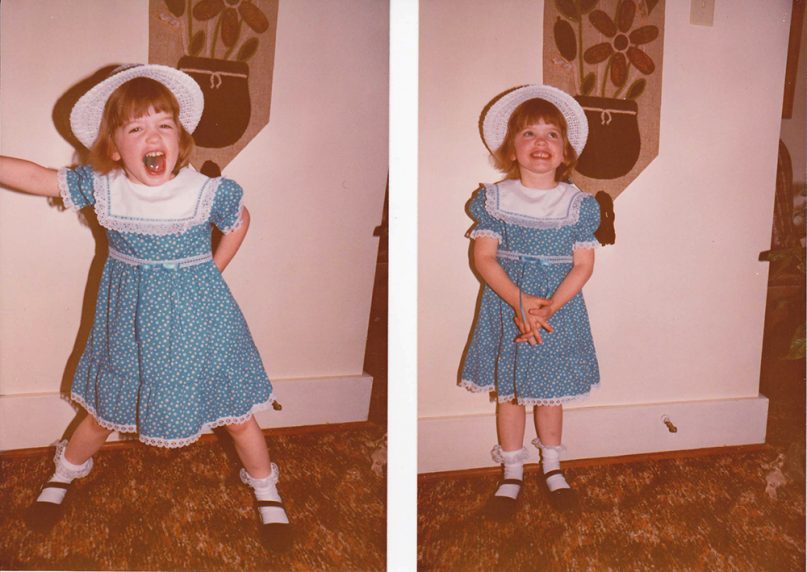(RNS) — When I was a little girl, my parents would bribe me with a dollar for every poem I memorized. It is disconcerting to see a child recite some of the sexier parts of Romeo and Juliet, but, what can I say, that was my idea of rebellion.
My father, the history professor, was big on making everyone remember things. One of the assignments for students in his Western Civilization class was to memorize and recite a chunk of some important document.
Pericles’ Oration on the Athenian Dead: “Our constitution does not copy the laws of neighbouring states; we are rather a pattern to others than imitators ourselves.”
The King James Bible: “Though I speak with the tongues of men and of angels, and have not charity, I am become as sounding brass, or a tinkling cymbal.”
Shakespeare: “And gentlemen in England now a-bed/ Shall think themselves accurs’d they were not here,/ And hold their manhoods cheap whiles any speaks/ That fought with us upon Saint Crispin’s day.”
Marx and Engels: “The history of all hitherto existing society is the history of class struggles.”
He told them that it was no accident that the Greeks identified Mnemosyne, the goddess of memory, as the mother of the Muses and that there could be no intelligent or creative activity without anyone drawing on what they had already stored in their brains.
But what about when an accident, old age or illness robs loved ones of their memory? Something sad and strange happens. We do not regard a person as any less herself if she loses a limb, or if a balding man watches his hair recede, or, as in my case, some cancerous section of a colon is cut away — but one who slips into memory loss is devalued, someone who is “not who they were.”
We watch in alarm as the sufferer, increasingly bereft of his past, his vocabulary, or awareness of the names of those around him, reacts with frustration, anger, bewilderment and depression; and we too undergo our own kind of memory loss: We forget, bit by bit, their precious uniqueness and, in a guilty way, come to regard them as a troublesome nuisance.
RELATED: RNS Special Report: Dementia and religion
In defining people by what they are capable of doing rather than who they are, we forget that the sufferer remains our husband, our grandmother or, most importantly, a child of God.
That this is often the case should come as no surprise. Our society honors the active, the rational and the problem-solving individual, capable of standing on her own two feet and taking on the world and, thus, to be overcome by dementia and to grow increasingly helpless is to lose claim on being fully human. As John Swinton says in “Forgetting Whose We Are: Theological Reflections on Personhood, Faith and Dementia,” there is a real sense in which this is “a cultural as well as a biological illness.”
To observe Lent is to prepare for loss. We will hear in Scripture the story of a man, once active and strong enough to stride the length of the Holy Land, suddenly deprived of his freedom and friends and now rejected and despised, esteemed not. We embarked on a walk for the next six weeks that will end on Golgotha, where an innocent man in the midst of his agony will cry because he believes his Father has forgotten him.
But his Father did not forget him, any more than he forgets the man or woman who has lost grip on their memories and cognitive faculties, or on those who lovingly care for them. Because to observe Lent is also to prepare for Easter and the wonderful reminder that we are not, after all, merely our bodies or our brains.
The empty tomb on that Sunday 2,000 years ago tells us that God remembers us, will come for our restored selves and will greet us by name. Memory will again be fresh: the familiar jokes, the recipes, the tales and the shared experiences will be recalled and our persons will be whole once more.
In the words of Isak Dinesen, there will be a “time when our eyes are opened and we come to realize that mercy is infinite. We need only await it with confidence and receive it with gratitude. Mercy imposes no conditions.”
(Kate Bowler is the author of “Blessed: A History of the American Prosperity Gospel” and the New York Times best-selling memoir “Everything Happens for a Reason: And Other Lies I’ve Loved,” which she wrote after being diagnosed with stage 4 cancer at age 35. She also hosts the popular podcast “Everything Happens” and is an associate professor at Duke Divinity School. Kate and her family live in Durham, N.C. This piece originally appeared at katebowler.com. The views expressed in this commentary do not necessarily represent those of Religion News Service.)





